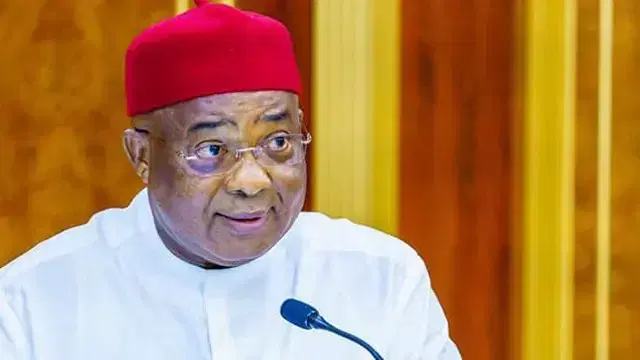On Thursday, African leaders were preparing a response to the officers who overthrew President Ali Bongo of Gabon and installed a general in his place. This was the most recent coup in West and Central Africa, which regional powers have been unable to stop.
The coup puts an end to the Bongo family dynasty’s nearly 60 years in power and presents a fresh problem for a region that has had difficulty adjusting to eight coups since 2020. It was referred to as a “contagion of autocracy” by Nigeria’s recently elected president.
The Economic Community of Central African States (ECCAS), a political grouping in Central Africa, denounced the coup in a statement and announced plans for a “imminent” summit of heads of state to decide how to react. There was no date provided.
According to a representative of the African Union Commission chair, the Peace and Security Council of the African Union will convene on Thursday to address the coup.
In order to stop what he called a “contagion of autocracy” spreading throughout Africa, Nigerian President Bola Tinubu, who took office in May and currently serves as the head of the West African bloc ECOWAS, said on Wednesday that he was collaborating closely with other African leaders.
After an election authority announced that Bongo had easily won a third term following the elections on Saturday, senior officers in Gabon announced their coup before dawn on Wednesday.
Later on Wednesday, a video showing Bongo being arrested at home and pleading for assistance while oblivious to the events taking place around him surfaced online. The general who formerly oversaw the presidential guard, General Brice Oligui Nguema, was also announced by the officers as the new head of state.
The coups in Mali, Guinea, Burkina Faso, Chad, and Niger during the past four years have erased democratic achievements made since the 1990s, which has alarmed Western countries with regional strategic interests. The coups also demonstrated how little influence African nations have after the military takes control.
Following a coup on July 26, ECOWAS threatened military intervention in Niger and issued sanctions; nevertheless, the junta has not caved. Military authorities in other countries, like Mali, have also defied international pressure. They have been able to maintain their positions of authority, and some have even won popular support.
To commemorate the coup in Gabon on Wednesday, hundreds of people flocked to the streets of the nation’s capital, Libreville. As people started going back to work on Thursday, the city became more tranquil, despite security personnel stationed at the major crossroads and thoroughfares.
Due to allegations of corruption, rigged elections, and a failure to distribute more of Gabon’s oil and mineral wealth to the poor, Bongo’s popularity has declined. After the passing of his father Omar, who had reigned since 1967, he assumed power in 2009.
Concern over the coup has been raised by the African Union, former colonial power France, the United States, Canada, and Britain. However, they haven’t specifically called for Bongo to be reinstated.
Josep Borrell, the head of foreign affairs for the European Union, claimed that there were numerous anomalies in the election and added that the EU rejected the usurpation of power by force.
“The challenges facing Gabon must be resolved in accordance with the principles of the rule of law, constitutional order, and democracy,” he declared.
Concerns regarding the integrity of the vote were raised by the absence of international observers, the suspension of some foreign broadcasts, and the authorities’ decision to cut off internet service and impose a nighttime curfew following the election.




